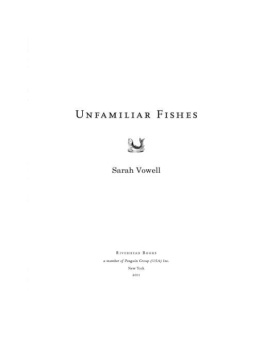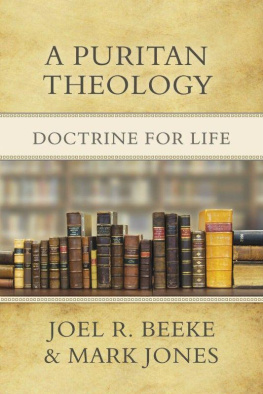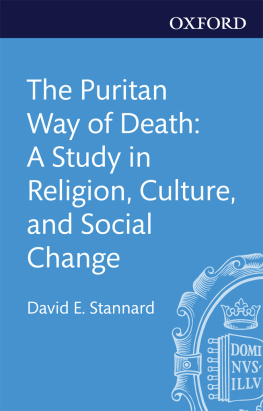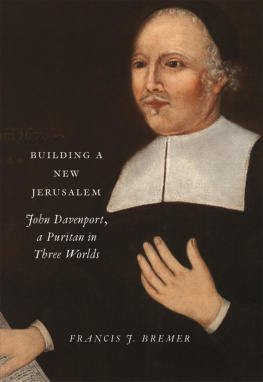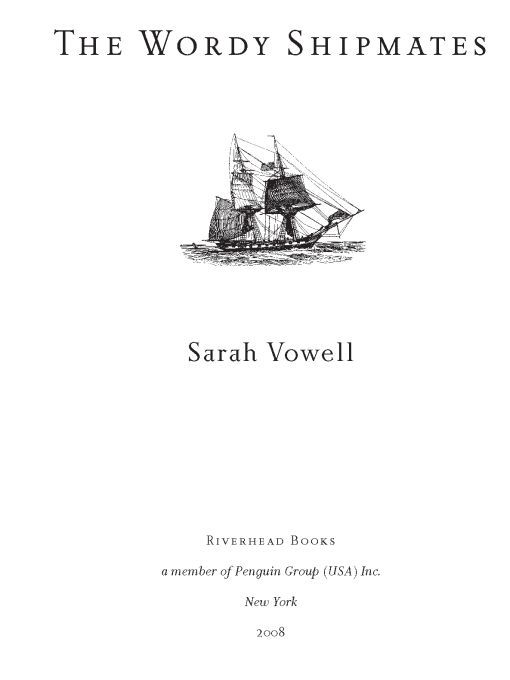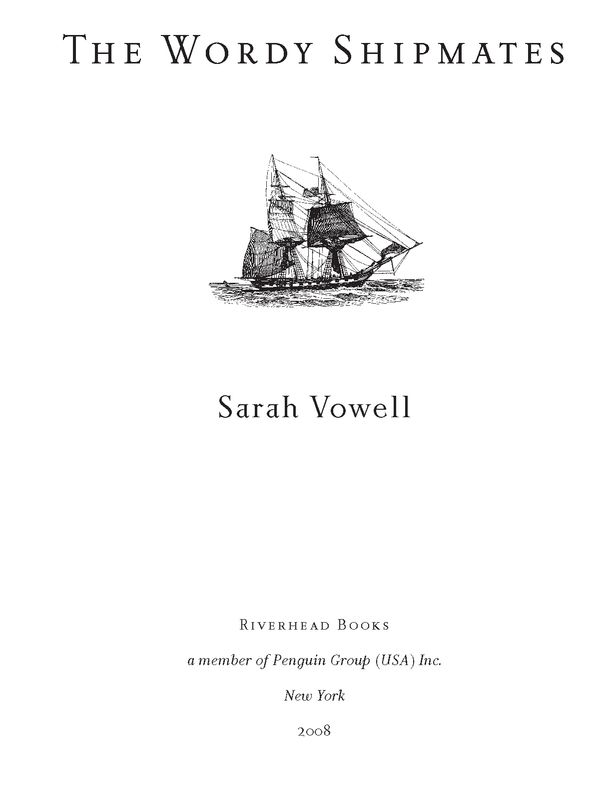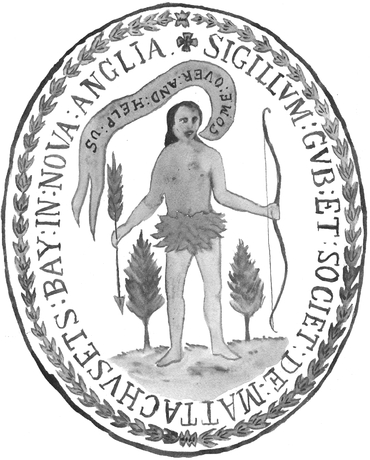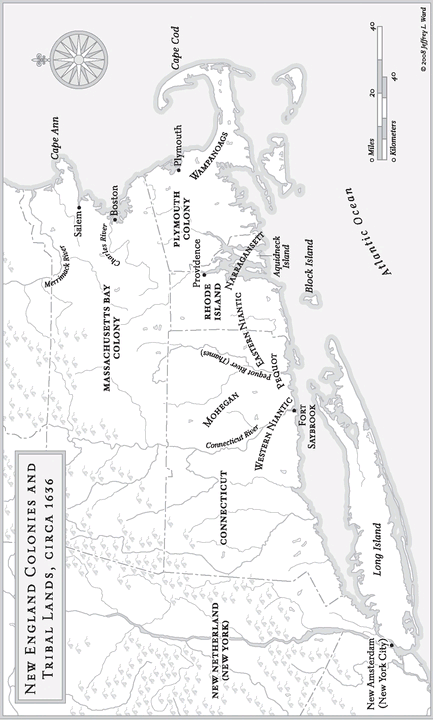Table of Contents
ALSO BY SARAH VOWELL
Assassination Vacation
The Partly Cloudy Patriot
Take the Cannoli
Radio On
For Scott Seeley, Ted Thompson, and Joan Kim
But oh! shipmates! on the starboard hand of every woe, there is a sure delight.... Delight is to him whose strong arms yet support him, when the ship of this base treacherous world has gone down beneath him. Delight is to him, who gives no quarter in the truth, and kills, burns, and destroys all sin though he pluck it out from under the robes of Senators and Judges. Delight,top-gallant delight is to him, who acknowledges no law or lord, but the Lord his God, and is only a patriot to heaven.
HERMAN MELVILLE, Moby-Dick
The only thing more dangerous than an idea is a belief. And by dangerous I dont mean thought-provoking. I mean: might get people killed.
Take the Reverend John Cotton. In 1630, he goes down to the port of Southampton to preach a farewell sermon to the seven hundred or so colonists of the Massachusetts Bay Company. Led by Governor John Winthrop, a gentleman farmer and lawyer, these mostly Puritan dissenters are about to sail from England to New England on the flagship Arbella and ten other vessels in the Winthrop fleet.
By the time Cotton says amen, he has fought Mexico for Texas, bought Alaska from the Russians, and dropped napalm on Vietnam. Then he lays a wreath on Custers grave and revs past Wounded Knee. Then he claps when the Marquis de Lafayette tells Congress that someday America will save the world. Then he smiles when Abraham Lincoln calls the United States the last best hope of earth. Then he frees Cuba, which would be news to Cuba. Then he signs the lease on Guantnamo Bay.
Cottons sermon is titled Gods Promise to His Plantation. He begins with one of the loveliest passages from the book of Second Samuel, an otherwise R-rated chronicle of King Davids serial-killer years. Chapter 7, verse 10: I will appoint a place for my people Israel, and I will plant them, that they may dwell in a place of their own, and move no more. Sounds so homey, like that column in the real estate section of the New York Times about how people found their apartments. Until I remember that talk like this is the match still lighting the fuses of a thousand car bombs.
What Cotton is telling these about-to-be-Americans is that they are Gods new chosen people. This they like to hear. In fact, they have been telling themselves just that. The Old Testament Israelites are to the Puritans what the blues was to the Rolling Stonesa source of inspiration, a renewable resource of riffs. What Cotton is telling them is that, like the Old Testament Jews, they are men of destiny. And, like the Old Testament Jews, God has given them a new home, a promised land. And, like the Old Testament Jews, God has printed eviction notices for them to tack up on the homes of the nothing-special, just-folks folks who are squatting there.
Its fine, according to Cotton, to move into a country not altogether void of inhabitants if said country is really big. After all, he continues, Abraham and Isaac, when they sojourned amongst the Philistines, they did not buy that land to feed their cattle, because they said There is room enough.
This is Gods plantation, remember? Cotton says, If God be the gardener, who shall pluck up what he sets down? Hear that, Indians? No weeding of the white people allowed. Unless theyre Catholic. Or one of those Satan-worshipping Virginians.
John Cotton is forty-six years old. He is the most respected, famous, and beloved Puritan minister in England. Getting him to bless the send-off of these relatively unimportant castaways would be like scoring Nelson Mandela to deliver the commencement address at the neighbor kids eighth-grade graduation. In fact, once the colonists arrive in Massachusetts they will name their settlement Boston, in honor of Cottons hometown.
These people listening to this man are scared. Theres a boat in the harbor that just might sail them to their deaths. They may never see their friends again until heaven (or hell, depending on how this dumb plan goes). For years theyve grumbled that England is a cesspool governed by an immoral king under the spell of the Whore of Babylon, which is their cute nickname for the pope. But now that its time to light out, their dear old mother country seems so cozy, all warm beds and warm beer and days of auld lang syne.
Yet here is the smartest man in England, maybe the smartest man in the world, telling them, little old them, that they have been picked by God. They are Israelites is what they are. They are fleeing Egypt. Good riddance! Next stop, land of milk/honey.
Now they know. They can do this. They can vomit their way across the sea. They can spend ten years digging up tree stumps to plow frozen fields. They can even learn to love corn. For the first time in months, they can breathe.
Then Cotton quotes Luke 12:48. To whom much is given, of him God will require the more. Of course theres a catch, Spider-Man. When God is the landlord, Cotton says, defraud him not of his rent. The price? Obedience. Break Gods laws and suffer ye His wrath. The Israelites, Cotton warns, might wrong themselves by trespassing against God, and so expose themselves to affliction.... If Israel will destroy themselves; the fault is in themselves. Great. All this special treatment might get them nothing more than special punishment from a creator who sure is creative when it comes to retributionthe prophet swallowed by the whale, the wife turned into salt.
Thank goodness for bees. Cotton points out that when the hive is too full, they seek abroad for new dwellings. Keep in mind that most of the colonists fear more than a watery grave, or the dark forest ahead, or even hell. They question their leaving. What if their sinful birthplace needs them? But Cotton reassures them that England has more than its fair share of Englishmen. He remarks that when the hive of the Commonwealth is so full, that tradesmen cannot live one by another, but eat up one another in this case it is lawful to remove.
Here we arrive at the reason why this here tale of American Puritans is more concerned with the ones shipping off from Southampton for Massachusetts in the Arbella in 1630 than with the Pilgrims who sailed from Southampton toward Plymouth on the Mayflower in 1620: because the Plymouth colonists were Separatists and the Massachusetts Bay colonists were not.
Before I explain that, I will say that the theological differences between the Puritans on the Mayflower and the Puritans on the Arbella are beyond small. Try negligible to the point of nitpicky. I will also say that readers who squirm at microscopic theological differences might be unsuited to read a book about seventeenth-century Christians. Or, for that matter, a newspaper. Secular readers who marvel every morning at the death toll in the Middle East ticking ever higher due to, say, the seemingly trifling Sunni-versus-Shia rift in Islam, might look deep into their own hearts and identify their own semantic lines in the sand. For instance, a devotion to





